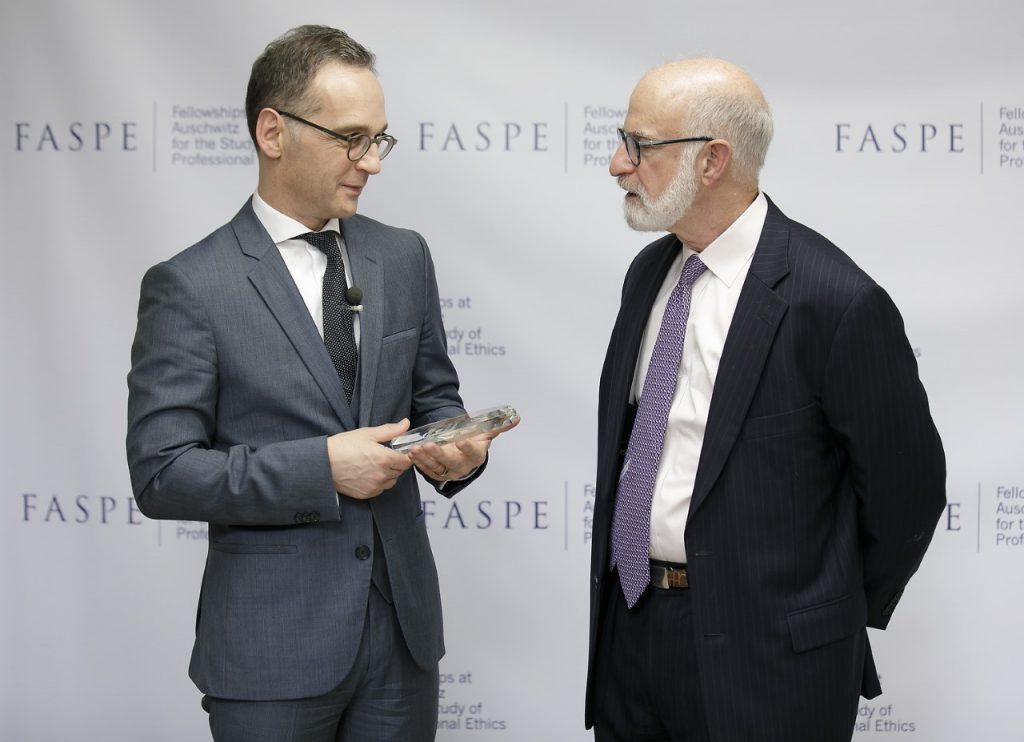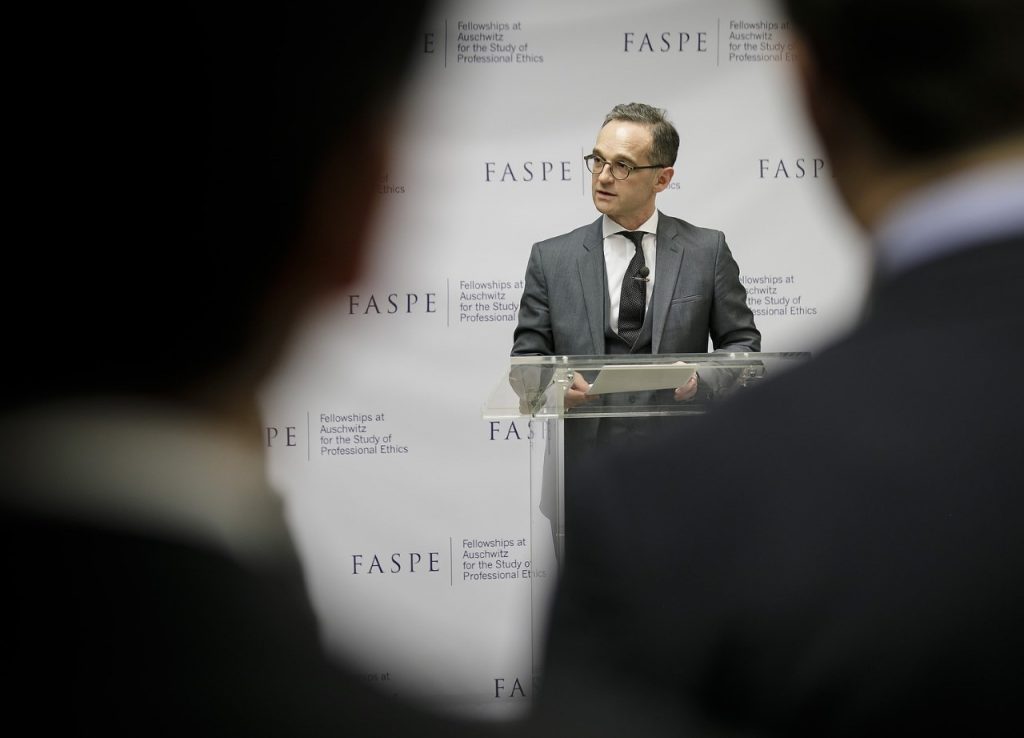At a private reception at LRN on April 2, German Foreign Minister Heiko Maas accepted FASPE Posthumous Award for Ethical Leadership on behalf of the late German-Jewish prosecutor and judge Fritz Bauer. David Goldman, Chair and Founder of FASPE, presented the Award to Maas.

Fritz Bauer (1903 – 1968) was a German-Jewish judge and prosecutor who prosecuted Nazi officials following World War II in German courts, despite active opposition from his superiors. Raised in Stuttgart, Bauer became Germany’s youngest judge in 1930 at the age of 26. In 1933, he was dismissed from his position and arrested and imprisoned for political activity against the Nazi party. Bauer fled to Denmark in 1935 and later to Sweden. After the war, in 1949, Bauer returned to Germany, eventually becoming the chief prosecutor for the State of Hessen. He focused his career on reforming the German justice system and bringing Nazi officials to trial at a time when Nazis continued to hold key government positions and anti-Semitism continued to pervade German society. Bauer set in motion the arrest of Adolf Eichmann in 1960. He is probably best known for the Frankfurt Auschwitz Trials, which began in 1963 and brought to trial 22 former officials of the Auschwitz-Birkenau death camp.

Maas is widely known for championing Bauer’s legacy. In 2015, when he was Minister of Justice and Consumer Protection, Maas established the Fritz Bauer Thesis Award for Human Rights and Contemporary Legal History. Maas has also said that the legacy of the Holocaust was pivotal to his decision to enter politics.
“I am deeply honored to accept the FASPE award on Bauer’s behalf,” said Maas, “The history of the German judiciary doesn’t have many heroes. One of the few was Fritz Bauer. He stood up for democratic values during the Weimar Republic, rejected the barbaric Nazi regime and continued his fight for justice in postwar Germany. Facing suspicion, even hostility, Fritz Bauer stayed true to his conviction that a democratic Germany could only have a future if it confronted its shameful past. His belief in justice and his quest for humanity inspire us, day by day, to stand up for human rights, to defend democratic values and to protect human dignity itself.”
